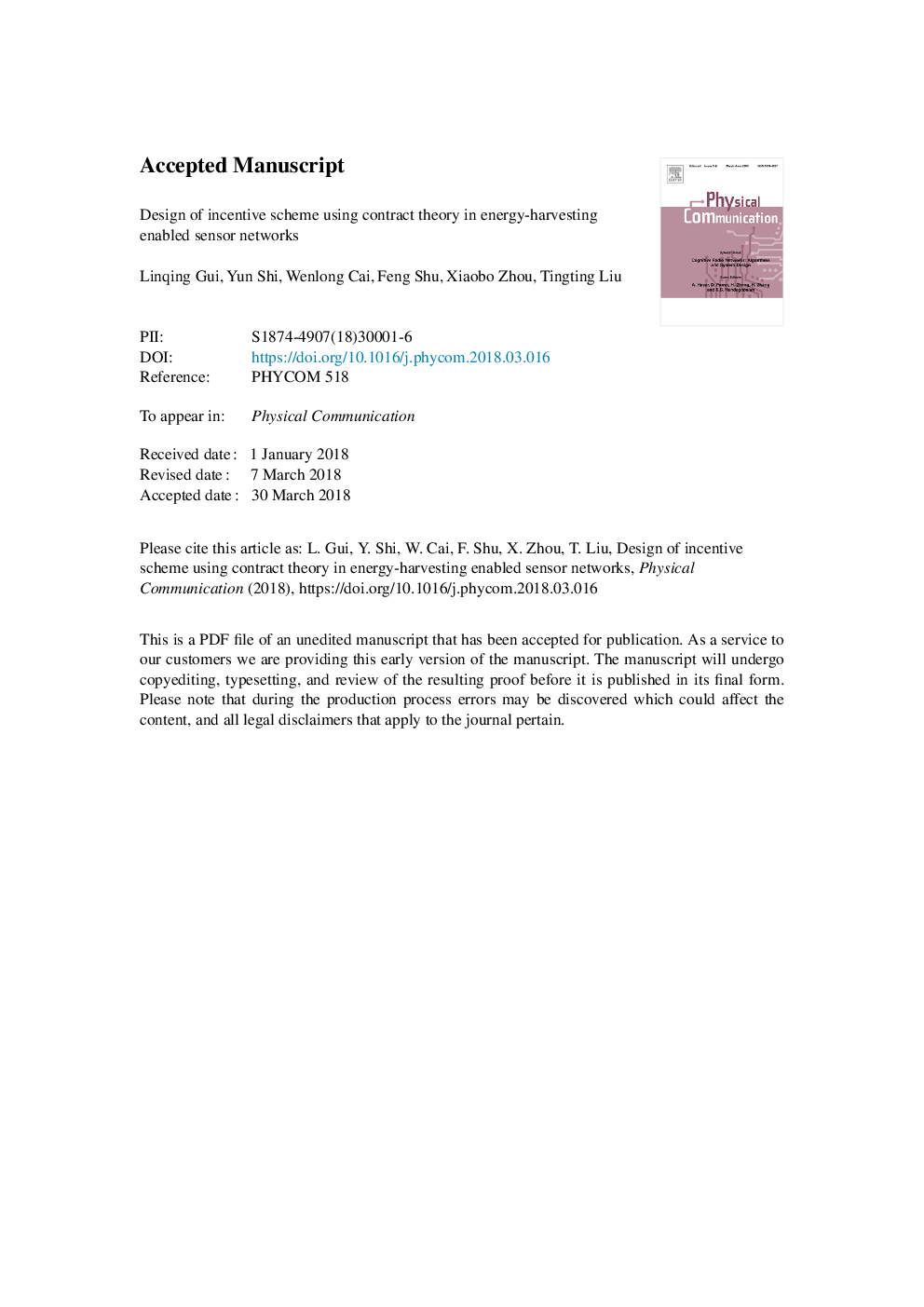| Article ID | Journal | Published Year | Pages | File Type |
|---|---|---|---|---|
| 6889077 | Physical Communication | 2018 | 14 Pages |
Abstract
Wireless energy harvesting (EH) has been proven to be a promising technique for sensor networks to enhance self-sustainability and robustness. Due to the popularity and the inherent mobility, mobile phones will become excellent EH sources for sensor nodes, especially when sensor nodes cannot harvest energy from other fixed ambient sources. In order to motivate ambient mobile phones to transfer power, incentive mechanisms should be provided. Therefore in this paper, a contract-theory based incentive scheme is proposed. Compared to relevant incentive schemes, the proposed scheme not only overcomes the information asymmetry problem caused by privacy-protection nature of mobile users, but has also taken some important characteristics (e.g., time cost of users and remaining capacity of batteries) of mobile users into consideration. Simulation results have shown the feasibility of the proposed contract as well as the effectiveness of the proposed incentive scheme.
Related Topics
Physical Sciences and Engineering
Computer Science
Computer Networks and Communications
Authors
Linqing Gui, Yun Shi, Wenlong Cai, Feng Shu, Xiaobo Zhou, Tingting Liu,
